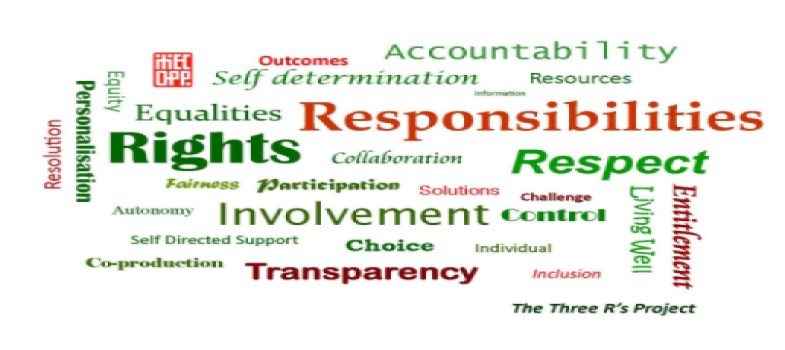Self-Directed Support and Human Rights
A Human Rights Based Approach
A Human Rights Based Approach means putting human rights considerations at the centre of all policies and practices.
In this way human rights are seen as both a means or process of achieving a desired outcome, driven by human rights standards and principles, as well as the outcome you want to achieve, that is, a situation where human rights are fully realised.
It involves integrating the legal standards and principles of the international human rights systems into policymaking as well as day to day practice. It can be applied to all areas of public life that affect human rights, including housing, education, policing, social care and health.
This approach is founded upon a set of core principles summed up in the PANEL approach which emphasises the following five elements, founded directly upon human rights law:
Participation: everyone has the right to participate in decisions which affect their human rights. This involves issues of accessibility including provision of information that people can understand
Accountability of duty bearers (those who make decisions which affect rights) to rights holders (those whose rights are affected): this requires both effective monitoring of human rights standards and effective remedies when not met
Non-discrimination and equality: This encompasses eliminating discrimination but also prioritising those in the most marginalised situations who face the biggest barriers to realising their rights. This part of the approach requires you to ask, does the activity identify who is most vulnerable, marginalized and excluded? Does it pay particular attention to the needs of vulnerable groups such as women, minorities and disabled persons?
Empowerment of rights holders: in order for a Human Rights Based Approach to be effective, everyone should know their rights and be supported to participate in decision-making, and to claim their rights where necessary. Which leaads directly to the final element...
Legality: Recognising that the situation is underpinned by legally enforceable rights.
